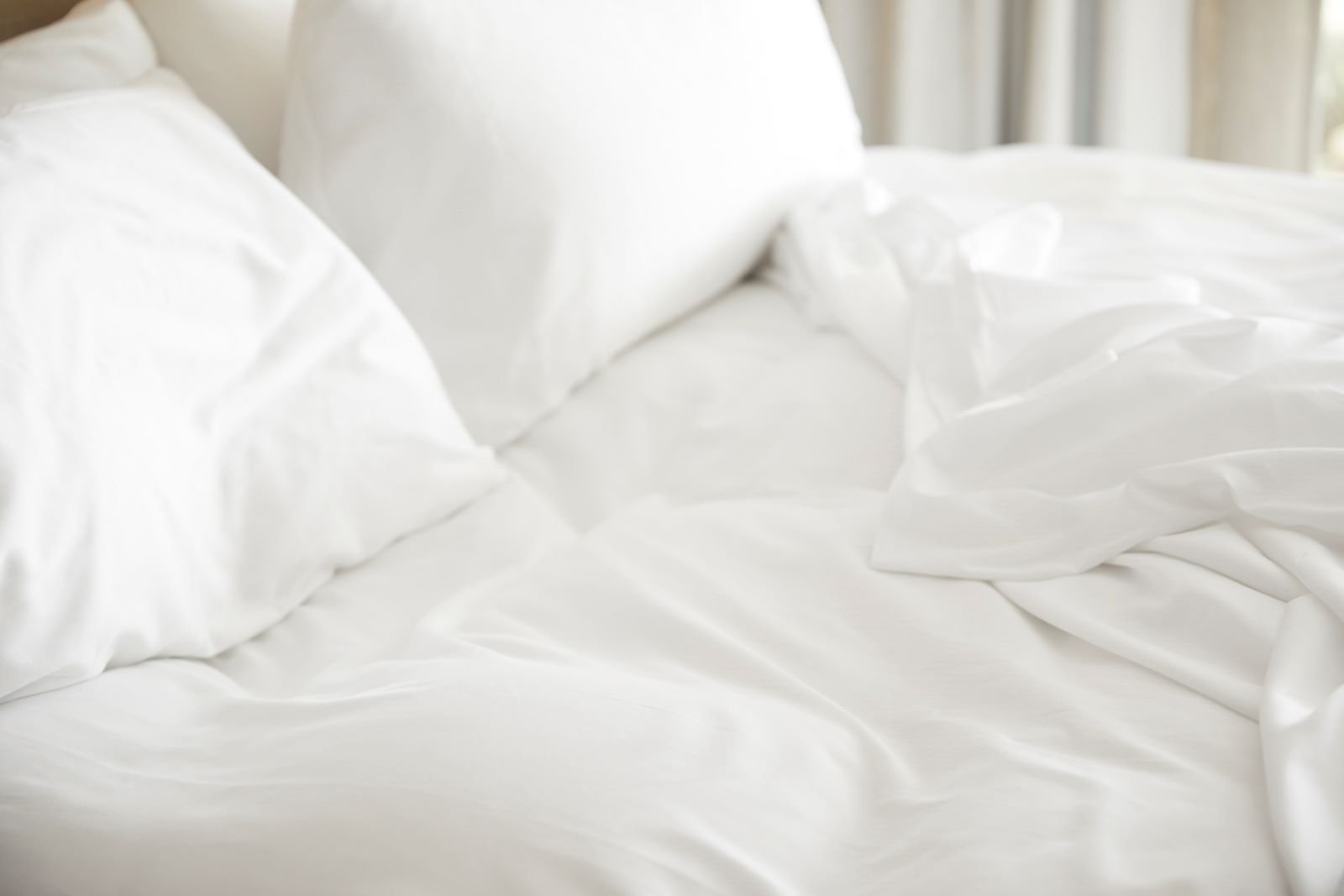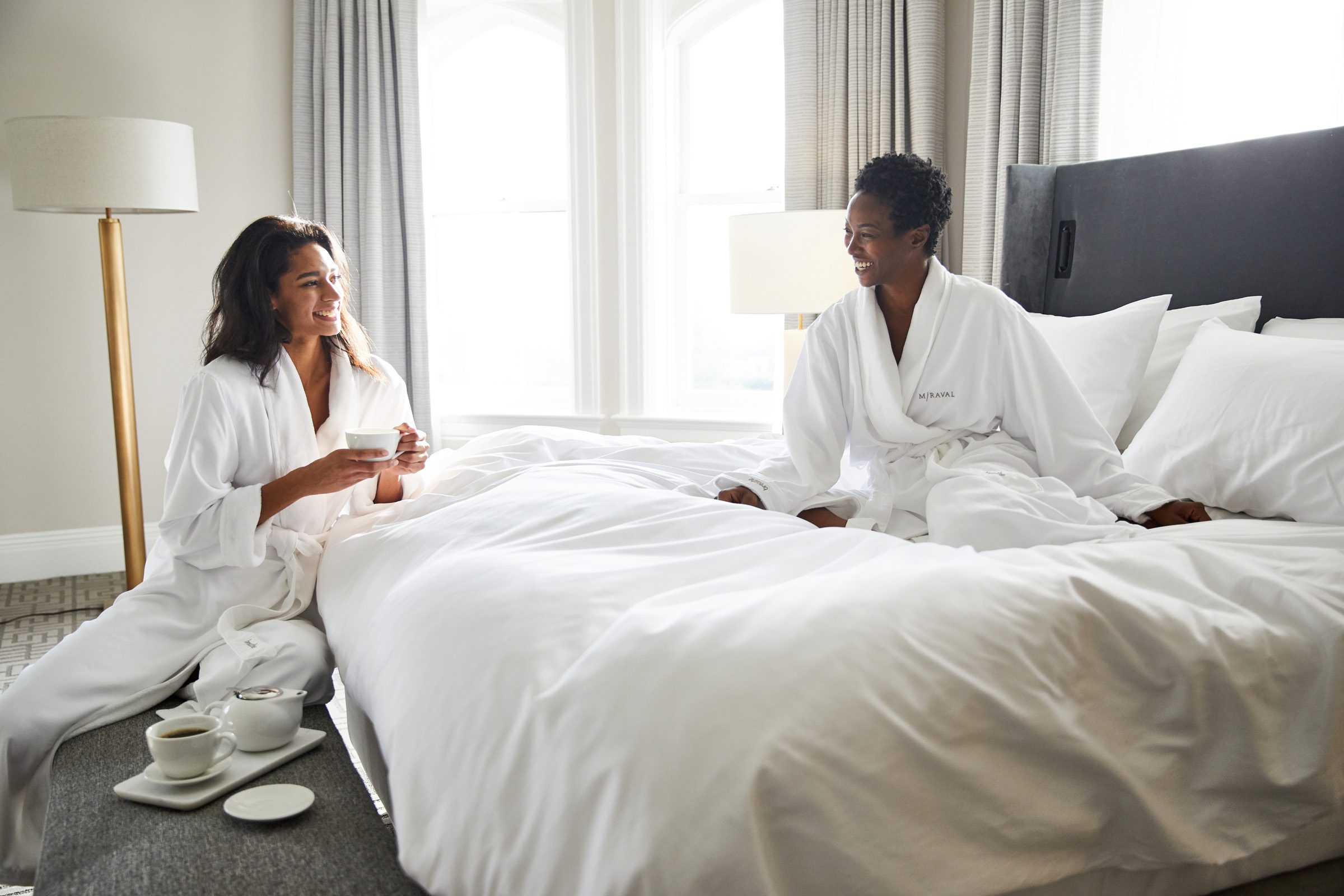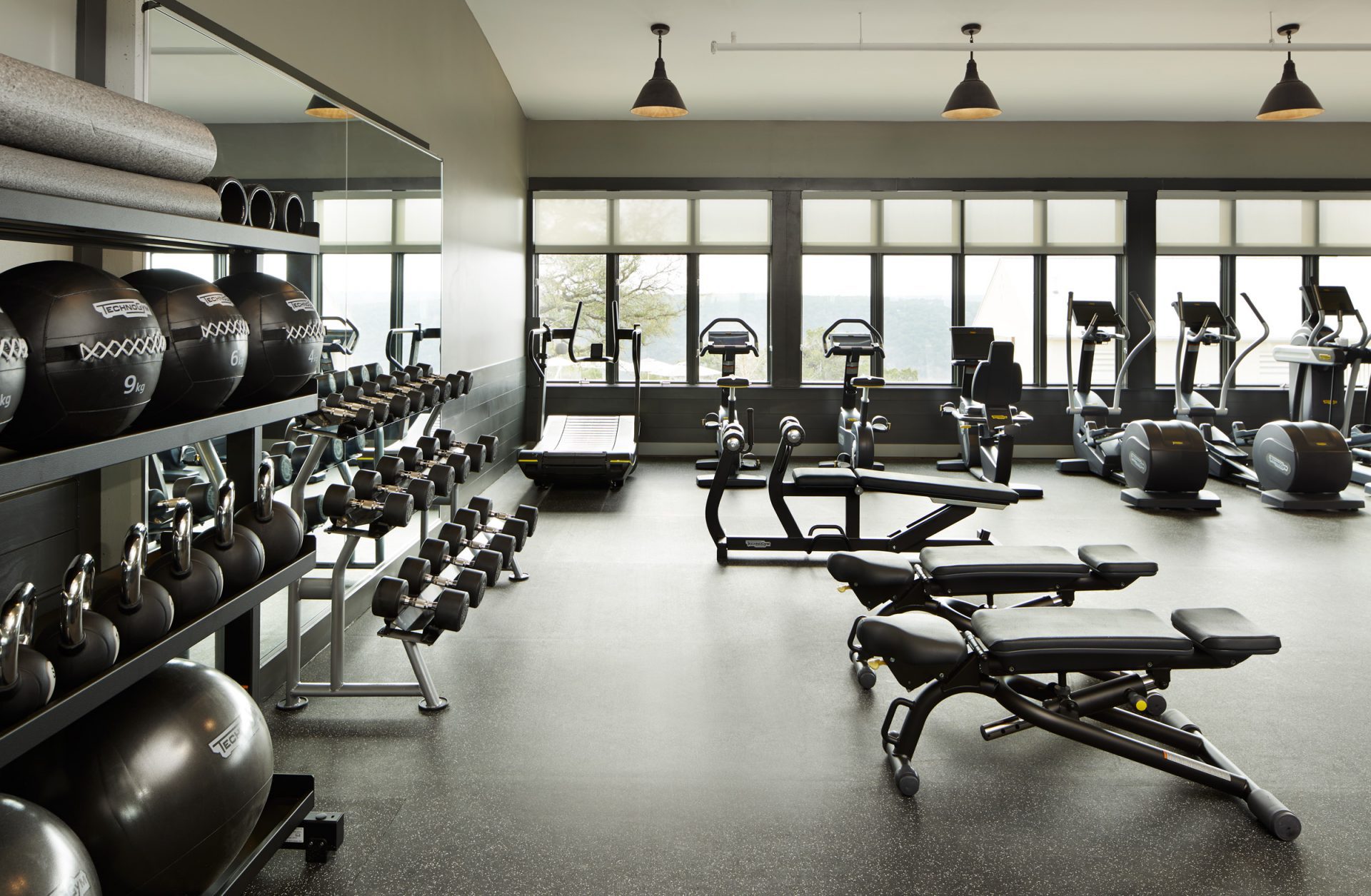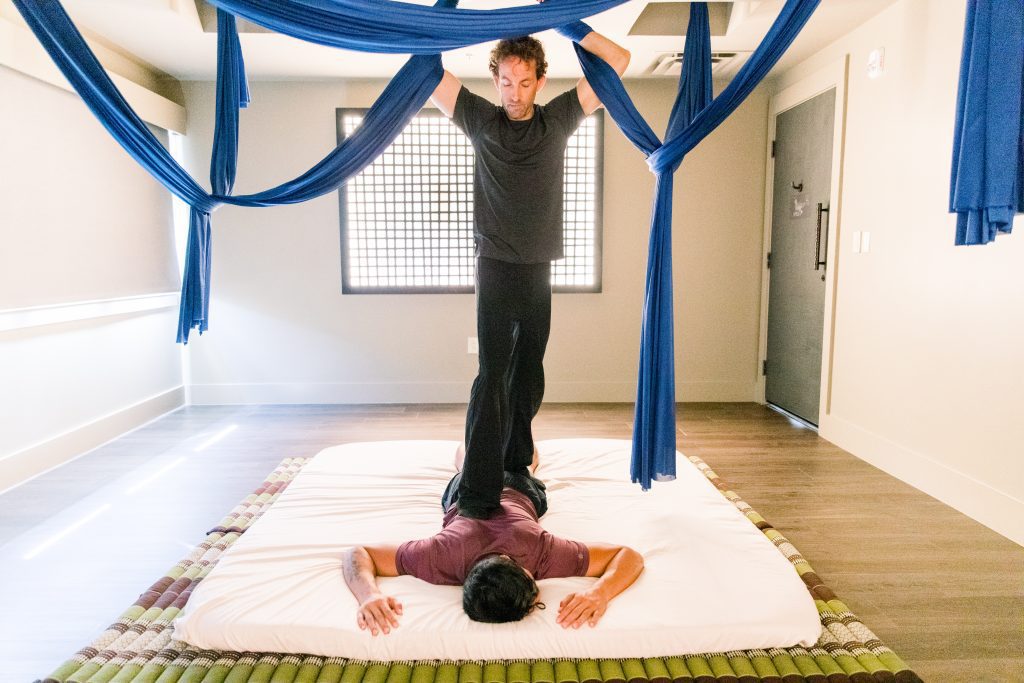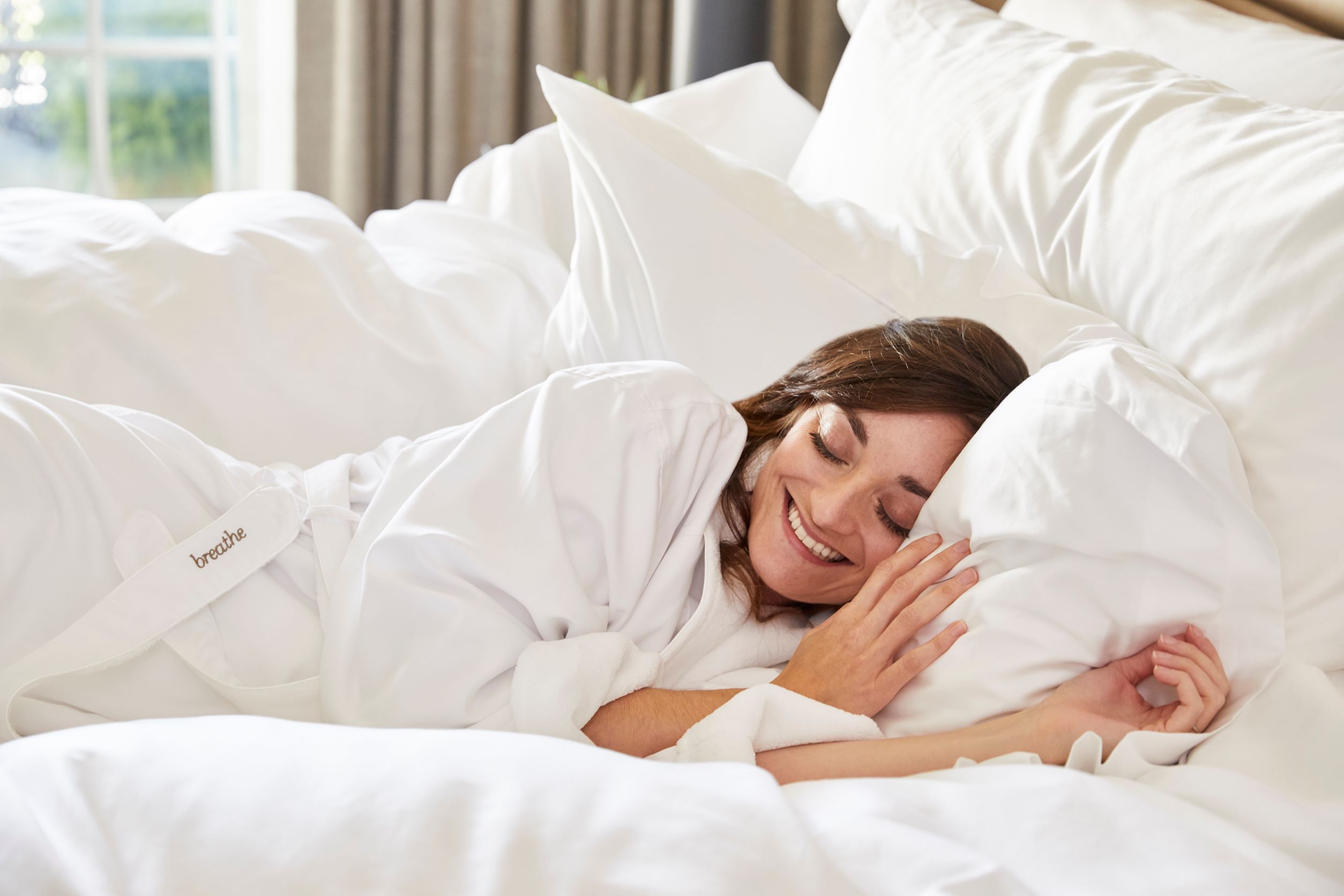Sleep & Stress
Guest post by Catherine Price is Miraval’s Digital Wellness Ambassador, founder of Screen/Life Balance
Where is your phone while you sleep? If you’re like most people, it’s probably near—or even in—your bed, and you look at it right before you close your eyes at night and right after you open them in the morning. This is a guaranteed way to prevent yourself from getting a good night’s rest.
The reason has to do with our bodies’ chemistry. As the sun sets, our brains release melatonin, a hormone that prepares us for sleep. Exposing our brains to any type of light right before bedtime disrupts this process and suppresses melatonin’s release. The “blue” light emitted by screens is particularly problematic: it mimics daylight and has the biggest effects on our bodies’ internal clocks. When you expose yourself to high levels of blue light before bed, you’re telling your body it’s daytime when it’s not. In other words, you’re essentially giving yourself jet lag.
Furthermore, the content most people view before bed often isn’t soothing. You might check email, visit social media, play games, or read the news – all of which are often stimulating, and thus make it harder to fall asleep.
Not only will this make you more tired when you wake up, but too little sleep can upset cortisol levels (a stress hormone)—and anything that gets our cortisol levels out of whack can negatively impact our health.
Here are some tips for how to create better boundaries with your devices so that you can get better sleep.
Get an alarm clock that is not your phone. When your phone is your alarm clock, you are guaranteeing that your phone will be the first thing you interact within the morning—because you are going to need to touch the phone in order to turn off the alarm. This means that whatever messages or notifications are waiting on your phone will dictate how you start your day.
To prevent this from happening, get a standalone alarm clock and create a charging station out of your bedroom—or, at very least, out of arm’s reach. (I also recommend getting a watch while you’re at it—many people use their phones to tell the time. Unfortunately, in addition to the clock, our home screens also show notifications—which puts us at risk of getting sucked into a phone spiral whenever we check the time.)
Then, proactively decide how you want to start your day. For example, you could exercise, or do a short meditation, or savor a cup of coffee—you may be surprised by how much time opens up when you don’t start your day staring at your phone.

Set a “bedtime” for your phone at least 30 (but ideally 60) minutes before your own. This will help your body recover from screen light—and whatever content you were looking at!—which in turn will make it easier to fall asleep.
Note that this doesn’t mean that you can’t check your phone after its bedtime; it just means that if you want to use it, you have to go to the phone. (In other words, it needs to stay plugged in.)
If you’ve visited Miraval in person, you should have received a special phone “sleeping bag,” which you can use to keep your phone out of sight while it recharges (this will help you recharge, too!). Regardless of whether you have an official “sleeping bag,” I suggest that you charge your phone out of sight, so that it will also stay “out of mind.”
I personally charge my phone in a closet, which means that if I want to use my phone after its bedtime, I have to stand in the closet! Needless to say, this is not very comfortable—and makes it a lot less likely that I’ll get sucked into a spiral of mindless scrolling.
Find an alternative activity that you can do in the evening instead of scrolling through your phone. For example, you could create a daily meditation practice and maintain it with our YouTube channel videos, which include guided meditations and sensory journeys. (To minimize your exposure to blue light, you can turn off the screen and just listen to the audio.)
It’s also helpful to put a book, magazine, or journal on your bedside table where you used to charge your phone. When you automatically reach for your phone, you’ll encounter a reminder of a new habit you’re trying to establish.
Create a calming environment. Keep your sleeping space dark and cool (blackout curtains are helpful); introduce peaceful scents, such as lavender, and colors you find soothing. Ideally, you should not watch television in your bedroom (and neither should your kids)—it can cause the same disruptions to our sleep as our phones. Your bedroom should be a sanctuary, not a stimulant.
Catherine Price
Catherine Price is Miraval’s Digital Wellness Ambassador, founder of Screen/Life Balance®, and author of books including How to Break Up With Your Phone and The Power of Fun: How to Feel Alive Again. She helps people scroll less and live more. Guests can learn more about her work—and get her books, plus more resources and practical tips—at ScreenLifeBalance.com (and @_catherineprice on Instagram, where she does her best to use social media for good!).
